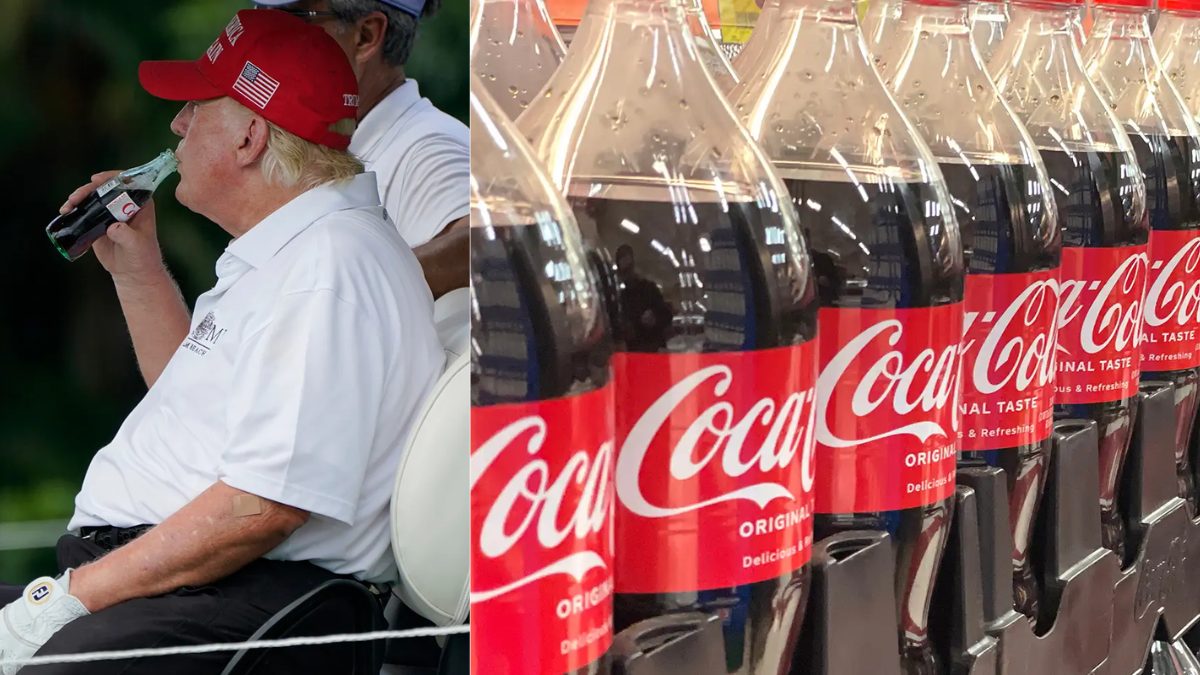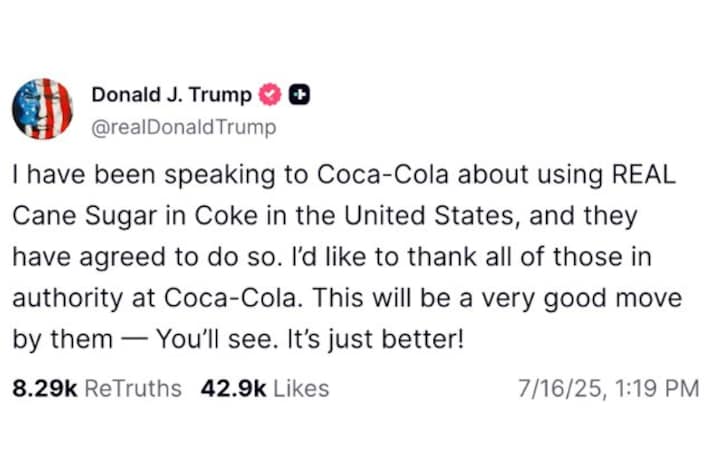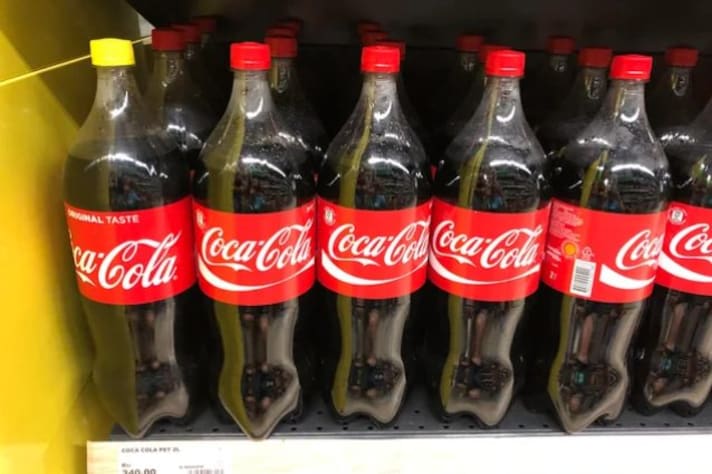
In a post on his Truth Social platform on July 16, 2025, former President Donald Trump claimed that Coca-Cola had agreed to replace high-fructose corn syrup (HFCS) with real cane sugar in its flagship U.S. soft drinks. “I have been speaking to Coca-Cola about using REAL Cane Sugar in Coke in the United States, and they have agreed to do so,” Trump wrote. “This will be a very good move by them — You’ll see. It’s just better!”
The announcement quickly stirred headlines and speculation, especially given Trump’s well-documented love for Diet Coke, which is sweetened with aspartame, not corn syrup or cane sugar. His push for the change aligns with broader efforts from his administration’s Make America Healthy Again initiative, led by Health Secretary Robert F. Kennedy Jr., which targets controversial food ingredients like HFCS, seed oils, and artificial dyes.

Coca-Cola’s Response: Vague but Appreciative
Despite Trump’s confident tone, Coca-Cola has not confirmed any official change to its sweetener formula. In a statement shared with multiple outlets, the company said: “We appreciate President Trump’s enthusiasm for our iconic Coca-Cola brand. More details on new innovative offerings within our Coca-Cola product range will be shared soon”.
The company’s response leaves room for interpretation. While it doesn’t deny discussions with Trump, it also doesn’t commit to replacing HFCS with cane sugar across its U.S. product line. For now, the only Coca-Cola widely available in the U.S. with cane sugar remains the imported Mexican Coke, which has long been prized by fans for its “cleaner” taste.
Industry Backlash from Corn Refiners
The Corn Refiners Association, which represents U.S. corn farmers and manufacturers, pushed back hard against Trump’s claim. In a statement, CEO John Bode warned that replacing HFCS with cane sugar would “cost thousands of American food manufacturing jobs, depress farm income, and boost imports of foreign sugar—all with no nutritional benefit”.
The group emphasized that HFCS and cane sugar are chemically similar in terms of glucose and fructose content, and that switching sweeteners would have minimal impact on health outcomes. A 2022 review found no meaningful difference between the two in terms of weight gain or heart health, though HFCS was linked to slightly higher markers of inflammation.

What’s at Stake
If Coca-Cola were to make the switch, it would mark a significant shift in U.S. beverage manufacturing. HFCS became the dominant sweetener in the 1980s due to corn subsidies and sugar import tariffs, making it cheaper and more shelf-stable than cane sugar. A reversal could disrupt supply chains, raise production costs, and spark political tension in the Corn Belt, a region that has historically supported Trump.
;Resize,width=767;)
